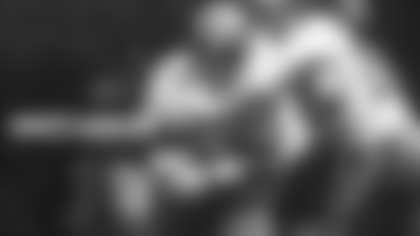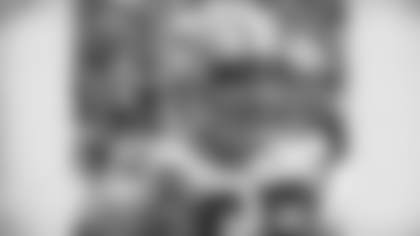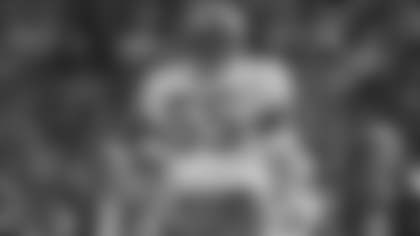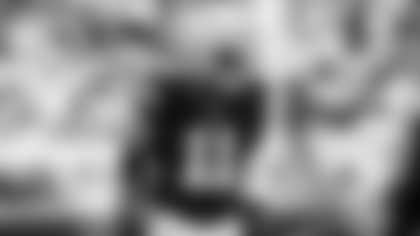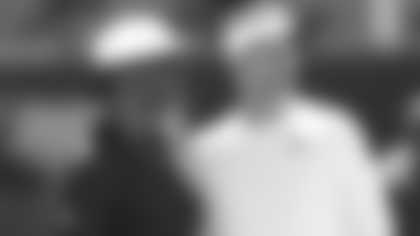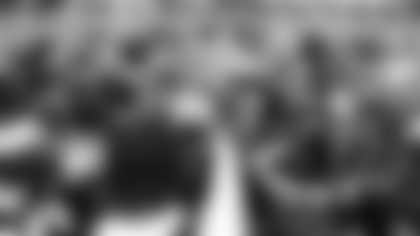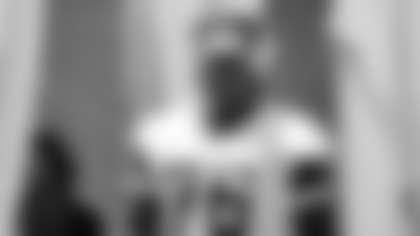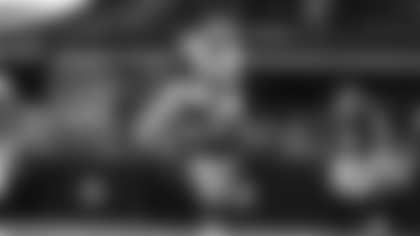Craig Morton is doing just fine, not that you asked.
Had things worked out differently in a game or two, maybe you would already know how he is spending his time in retirement, just as Cowboys fans have kept up with Troy Aikman as if he were an ex brother-in-law, and still know Roger Staubach as well as they do the neighbors from around the corner. Morton's story is lesser known, mainly because few in Dallas cared to keep up with it.
He is remembered by some as the quarterback who threw the soul-crushing interception in Super Bowl V, then lost out to Staubach in a wild battle for the starting job the next season, with the Navy veteran (of course) going on to lead the Cowboys to their first championship.
He is remembered by fewer for being nearly murdered by the Doomsday Defense while playing for the Denver Broncos in Super Bowl XII several years later. For all but the most lucid longtime Cowboys fans, the footnotes probably end there. Most younger followers are probably unaware that there ever was a Craig Morton.
Such is life for a quarterback who doesn't win big. Especially in Dallas. Same then as it is now. Same as it will be in the future.
But Morton has no regrets. Really. That's what the Californian says, anyway, on a conference call back to Dallas, joined on the phone by his lawyers. Morton has a lawsuit pending. He is suing the National Football League, claiming that he was exposed to multiple concussive and subconcussive brain traumas, and that the NFL willfully and deliberately did nothing about it during his long career of 17 years.
"You gotta get it right," Morton says. "It was 18."
Right, 18 years.
"I don't know how I ever played that long," says the former quarterback who will turn 71 three days after Super Bowl XLVIII. "It was filled with every kind of emotion, physically challenging, it just runs the gamut, what you experience. Playing quarterback, you're always challenged, and you're always hopefully prepared for what you're going to face. Watching the game today, I don't see much difference, except everybody's trying to take care of the quarterback. In my day, they didn't."
In the modern game, there exist layers upon layers of rules to protect the man behind center, often the face of his respective franchise and the team's highest-paid player. The most obvious security measure is a very generous roughing-the-passer penalty, which can be called whenever a defender even comes close to making contact with the head of the quarterback. Pass rushers were afforded far more leeway in the old days.
Pocket safety measures aside, injuries still account for many of the missed games by quarterbacks – mental weakness and poor play being the other primary reasons. In 2013, 51 different players started at quarterback in the NFL, and most league observers will agree that only 10-15 of them are truly capable of filling such a job effectively. Even in Morton's day, from the beginning of his career in 1965 until he retired after the 1982 season, there were far more jobs than there were good-enough quarterbacks.
And this is why he stuck around for so long, taking the pounding, taking the emotional abuse. One of the few quarterbacks good enough to give his team a fighting chance every Sunday, Morton was useful for a long time. Until he was used up.
"There was not any monitoring going on when I played," he says. "When you were hurt, you just got back up and you played. I played 11 games with a separated right shoulder. You just got shots and you got treatment, and you went right back in. You would scream when you threw, it hurt so bad. Seeing stars? Well, the game was just different. You just wanted to play, and it was, like, demanded that you play. And if you didn't, you would lose your job. You had to play."
And despite all of this, Morton is not bitter. Not about his health – he just wants what he believes is deserved restitution. Nor is he bitter that he didn't win a Super Bowl in Dallas, or that Staubach did, or that he was traded, or that he lost to those very same Cowboys in his next closest chance for a title. Or that even in Denver his contributions were quickly eclipsed by his successor, John Elway.
If losing a sporting event is the worst thing that happens to you, you've lived a pretty good life.
For more than 30 years since Morton put his playing career aside, the sun has continued to rise. He raised two children of his own, and served as a foster parent to others. He coached the Denver Gold in the USFL. He was in the oil business. He worked at his alma mater, the University of California-Berkeley, as a fundraiser, and for a while now he has just been retired, which of everything he's done, is his least favorite, "Because I don't like sitting around," he says.
This was the same reason Morton asked to be traded from the Cowboys in 1974, as any controversy between he and Staubach had long been decided.
As scarce as quality quarterbacks are in the NFL, it's amazing to think that the Cowboys once had three as good as Staubach, Morton and Don Meredith – the predecessor to both of them, and the first player to ever sign with the team. After sitting behind veteran Eddie LeBaron to begin his career, Meredith opened the 1963 season as the Cowboys' starter for the first time and played well.
But before the season had ended, team brain trust took a flyer on that year's Heisman Trophy winner, Staubach, in the 10th round of the NFL Draft, protecting his rights in the event he wanted to play football after his five-year service commitment was over. Even with Meredith in the prime of his career and Staubach on ice, the Cowboys again addressed the quarterback position in 1964's fall draft, this time selecting the prototypical, 6-4, 214-pound pocket passer Morton with their first-round pick, No. 5 overall.
"We used to draft a quarterback every year," says Gil Brandt, the long-serving Cowboys' vice president of player personnel and chief talent scout. "We had a great belief that you could never have too many of them. We wanted to just see what the long-range possibilities of any of them we could get would be."
For his first four seasons, Morton played only sparingly, as coach Tom Landry preferred his quarterbacks especially to gain as much seasoning as possible before being thrown into the fire. Staubach, meanwhile, spent his leave time at training camp, but returned to the Navy during the season.
Morton had the closest view of Meredith's trials and tribulations at the front and center of the Cowboys. At the time, the team had come to be known as "Next Year's Champions" following back-to-back losses to Green Bay in the NFL Championship Game to end the 1966 and 1967 seasons, the first at home despite scoring 27 points, and the second at Lambeau Field in the famous Ice Bowl, lost on a Bart Starr quarterback sneak with 16 seconds to play. The next year, 1968, the Cowboys fell a game short of another title shot, losing in the playoffs at Cleveland following a 12-2 regular season.
Whatever the circumstances of the Cowboys' failures, it was usually Meredith who took the public flogging.
"They were booing him like mad, saying 'We want Morton, we want Morton,' and I went over to him and said 'I'm sorry, Don,'" Morton remembers. "He said, 'It'll be your turn soon.' And it was."
Despite being named to the Pro Bowl for a third straight season, Meredith walked away from his playing career at only 31 years of age following the 1968 disappointment. The job now belonged to Morton in his fifth season. Staubach joined the team in 1969 as his backup, one year older than Morton (to the day), but still strangely a rookie, and already a family man compared to the bachelor Morton.
"They were very different," Brandt recalls. "Craig was a guy that was a bit of a socialite. He did enjoy the social world in the great city of Dallas and enjoyed the party. Roger was a home-at-night guy."
Oddly enough, Staubach started the 1969 season opener, as Morton was held out due to a broken finger. The Cowboys won easily over St. Louis, and Morton returned the next week to another win, and then another, and another.
"He got off to a fantastic start," Staubach says. "He was really a fantastic quarterback. He hurt his shoulder against the Atlanta Falcons [in Week 4], and I think that really played a role in part of his career with the Cowboys. He still came back and played really well."
Despite having separated his throwing shoulder against Atlanta, Morton tossed five touchdown passes to help the Cowboys stay unbeaten at 5-0. He played well throughout the year, basically equaling the production fans had become accustomed to under Meredith. But when the season ended in another bad loss to Cleveland, Landry opened up competition throughout the roster at the behest of his players.
"There was lots of criticism after that year, and it caused a total reevaluation," says Calvin Hill, a rookie running back on the 1969 squad.
Morton had undergone offseason surgery on his shoulder, which cost him arm strength and didn't allow him to meet a pre-determined performance level in the 1970 preseason, so Landry benched him to start the year, again handing the keys to Staubach. He led the Cowboys to consecutive wins to start the season, but Landry went back to Morton when Staubach threw his second interception of the day in a bad loss to the St. Louis Cardinals. The team remained inconsistent under Morton for six weeks, slipping to 5-4 in mid-November following a 38-0 home loss in the second meeting against St. Louis.
"The fans started chanting 'We want Dandy Don!'" Hill remembers.
Almost miraculously from that low point, the club rallied around leadership from a number of its veterans and ticked off seven straight wins, including two victories in the playoffs to earn a Super Bowl berth. Despite his lack of arm strength and playing with an infection caused by gravel becoming lodged in his elbow, Morton finished the season with an 89.8 passer rating, the best ever to that point for a Cowboys' first-team quarterback.
However, things could not have gone worse in Miami against the Baltimore Colts.
"I didn't play very well," Morton says. "There was a lot of tipped passes that were going into Baltimore's hands. Duane Thomas fumbled on the one-foot-line when we would've won the game. … That game was very frustrating because a lot of things were happening. It was just a weird deal. Finally it was a third-and-13, [tied] with about 45 seconds left, and I asked Coach Landry, 'Why don't we play for overtime?' He says, 'No, no, let's go for this play.'
"He wanted me to roll out to my right and hit Dan Reeves. So the pass goes through Danny's hands and into [Baltimore linebacker] Mike Curtis's stomach. They run on and kick the field goal and the game is over."
Jim O'Brien's 32-yard field goal would come to be known as "the kick heard 'round the world." Hall of Fame defensive tackle Bob Lilly, disgusted, hurled his helmet across the field in the ultimate image of the Cowboys' big-game futility.
"That was not real pleasant for anybody," Morton says.
The offseason before 1971 was a tumultuous one for Morton. Among other off-the-field problems, he was forced to file for bankruptcy, admitted to working with a hypnotist prior to games the previous season to help him perform, and commented to an Abilene, Texas, newspaper reporter that the starting job in Dallas belonged to him, not Staubach. He would hear every bit as much criticism as Meredith had endured in the years prior.
"I have come to realize the deep hurt and frustration that Don once felt and which may have put an early end to his great career," Morton wrote in a guest column for the Dallas Times-Herald a month after the Super Bowl V loss. "I do not write to complain, but to relay to the fans the absurdity that surrounds the personal life of a celebrity. …. I probably have become more withdrawn the last two years because of many unpleasant moments in public. I know all this goes with being an athlete, and I accept it as such. I have accepted criticism and blame without comment, and I have been the first to praise others where praise is due. I have always done these things and will continue to do so, as it is part of my real self. … I love Dallas and its people, but I will not change my beliefs or goals for those who scorn and criticize me."
The story of the Cowboys' quarterback shuttle of 1971 has been told many times. Already 29 and seeing his chance for a career beginning to slip by, Staubach asked Landry in the offseason for the chance to start or be traded. Landry promised him the opportunity to compete with Morton for playing time, but the coach couldn't make up his mind as the season drug onward. First he alternated between Morton and Staubach from game to game, or rode the hot hand, or let them trade off possessions. That all culminated in the two rotating in and out each play in a loss at Chicago, which dropped the Cowboys to 5-3. Decision time had come for Landry.
"The weirdness really ended when we played the Bears," Staubach says. "Coach Landry was a phenomenal football coach, and we loved him to death and everything else. But the team was divided at that time. A lot of guys wanted Craig, and a lot of guys wanted me. And then when Coach Landry announced that I was going to start, I was shocked. My life changed because I got a chance. And Craig couldn't have been a nicer, more supportive person. I'm sure deep down in his heart he felt bad, but he was fantastic."
In one of a handful of seminal turning points for the Cowboys franchise in its 54 seasons of existence, Staubach took the starting job once and for all that November and never looked back. Riding a strong defense and the running of Thomas, he guided the Cowboys to seven straight wins to close out the regular season, and two more in the playoffs, on the road at Minnesota in the divisional playoffs and at home against San Francisco in the NFC Championship Game. Two weeks later, Super Bowl VI in New Orleans was a coronation. With Staubach at the helm, the Cowboys finally overcame the "Next Year's Champions" label, beating the Miami Dolphins, 24-3.
"The first guy to come over and congratulate Tom was Craig," Brandt recalls. "He very easily could've been angry, or had a personal dislike for Tom."
Instead, Morton played the consummate teammate. While the starting job belonged to Staubach heading into the 1972 season, he was sidelined by a separated shoulder of his own, and the job reverted to Morton, who started all 14 games. Though he didn't have the same numbers as in previous campaigns, Morton led the Cowboys to 10 wins and a playoff berth. But his fate with the team was ultimately sealed in the first postseason game when he threw a pair of interceptions and then saw Staubach come off the bench to stun San Francisco with two game-winning touchdown passes in the final 90 seconds. Although Staubach couldn't recapture the magic the following week, and the Cowboys were crushed by Washington, his previous Super Bowl win had been inoculated against the public criticism that plagued Meredith and Morton.
"People weren't going to get on my back because we had won in '71," Staubach says. "If we hadn't won in '71, I'm sure people would've said Staubach can't win the big game."
Morton rode the bench and played in mop-up duty behind Staubach in 1973, and intended to leave the NFL for the upstart World Football League, but eventually his requests for a trade were capitulated. Recognizing the quality of player they had in Morton and the scarcity of good quarterbacks, the Cowboys had been reluctant to move him for anything less than a square deal. Six weeks into the 1974 season, the New York Giants stepped forward with such an offer, handing two draft choices to the Cowboys for the quarterback. As it turned out, the second of the two picks busted – running back Jim Jensen played only one year with the Cowboys.
The other draft selection, though, was used on Randy White. Nine first-team All-Pro selections and a gold blazer later, it's fair to say the Cowboys got their money's worth for Morton. New York did not. With very little talent around him, Morton won only eight of 25 games in two and a half seasons with the Giants. Again he was traded, this time to the quarterback-starved Broncos, who in 18 years of existence dating back to the founding of the American Football League, had finished above .500 only three times.
"The Giants were not a good team – it was absolute havoc," Morton says. "We didn't have a place to play. We played at the Yale Bowl, Shea Stadium, Yankee Stadium – we were all over the place. We practiced at Pace University. We had no weights, no nothing. If you got there early you might get a pair of socks that stayed up or a jock that wasn't broken.
"Then when I got traded to the Broncos, I was like, 'Now this is a team.' We had a great defense, and I knew how to play to that. … I'll never forget the first time I ever walked into the Broncos locker room, [defensive lineman] Lyle Alzado was sitting in a locker across from mine, and he looked up and said, 'Now we'll win a championship.' That's all I needed."
In Denver, Morton became a hero. At 34, he put up his best numbers since 1970, led the Broncos to a 12-2 regular season record and was named the NFL Comeback Player of the Year. In back-to-back playoff games, despite nursing a hip injury that put him in the hospital, Morton outplayed Terry Bradshaw of the two-time Super Bowl-winning Pittsburgh Steelers, then Ken Stabler and the defending champion Oakland Raiders.
"It was by far the greatest moment of my football life," Morton says.
He was back in the Super Bowl. And there to meet him were Tom Landry and Roger Staubach. And Harvey Martin. And Randy White. "I knew we were going to have a lot of problems," Morton says.
Naturally, Super Bowl XII was hyped as a matchup between Staubach and Morton, with the latter becoming (to that point) the only quarterback to have started a Super Bowl for two teams. But in the eyes of Staubach and the former Cowboys remaining from Morton's tenure in Dallas, there was no rivalry.
"He was so well-liked," Staubach says. "But I'm sure if we would have lost everybody would've said they got rid of the wrong quarterback. That wouldn't have been a fun thing. Losing would've been a disappointment, but losing to Craig would've made it worse."
Unfortunately for Morton, it was never really close.
"The one team we couldn't beat was the Cowboys," Morton says. "That was the one team in football, week in and week out, we would've had a hard time staying with because their front four on defense, we couldn't handle. And it showed in the Super Bowl when I was counting the tiles on the Superdome roof. I counted all of them."
Morton completed his first pass of the game for 21 yards, but was sacked on the next drop-back and amid heavy pressure, threw two interceptions before his second completion, by which point the Cowboys were already ahead 10-0.
"[Morton] was not the most mobile guy later in his career because he had gotten beat up some," Brandt says. "And we were able to really blitz quite a bit. … We probably just matched up really well against them because their offensive line was not one of their strengths."
Morton threw another interception, No. 3 on the day, before his third completed pass, which was immediately fumbled over to Dallas by the receiver, as was Morton's next completion. He threw his fourth interception of the half on the next Denver possession, allowing Dallas to kick a field goal. By the fourth quarter in the biggest game of his life, Morton had been replaced by backup Norris Weese. He finished the game a woeful 4-of-15 for only 39 yards.
"Our defense just dominated," Staubach says. "Stick me with Denver, I might've been able to scramble a little bit better, but Craig would've had a field day on my side of the ball, too."
Martin and White, who had run roughshod over the Denver offensive line and terrorized Morton on virtually every drop back, were name co-MVPs.
"They just killed me," Morton says. "We were turning the ball over too much, and I was trying to do things I shouldn't have been doing. But we didn't have much chance." [embedded_ad]
Though he would play another five years, and led Denver back to the playoffs in each of the next two seasons, Morton would never again come close to chasing a title as a starting quarterback. If a play here or a play there had worked out differently, either in Super Bowl XII, or during the 1971 season, or even Super Bowl V, perhaps he would be better remembered, especially in Dallas. Perhaps Cowboys history would be much, much different.
That's how circumstances work, though. An oblong ball doesn't bounce the same way very often, and despite the overwhelming physical, mental and emotional demands on a quarterback, each is only a cast member in a huge ensemble production.
Just like Meredith and Danny White or now Tony Romo, Morton was one of many quarterbacks good enough to capture a championship. But there can only be one winner each year, and sometimes fate decides who it will be.
"He had a great arm, a great mind, and outstanding accuracy. And he was as tough as anybody," Brandt says of Morton. "I don't think there's any question we would've won one with him."
Time doesn't heal all wounds, and Morton is still dealing with his fair share physical issues. But sore feelings are not a problem more than 30 years after retiring, and almost 40 since he left the Cowboys.
Craig Morton is doing just fine.
"I wish it could've been better," he says. "But over an 18-year span, there were a lot of great things that happened – put yourself in all the playoff games I was in and the Super Bowls, and I was on a world championship team. I think about some of the bad things that happened, but how do you feel bad when you have that kind of career? I'm not hanging around the house feeling bad about any part of it."
Neither, Morton says, should any quarterback who was good enough to win a title, but perhaps fell short. Fairly or unfairly, he says, "that's kind of how you're judged."
"Tell Romo I've been through this."




